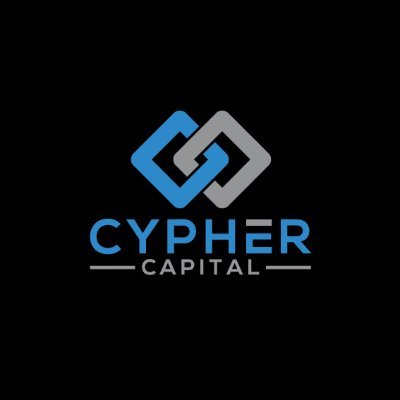Dialogue with Cypher Capital Chairman: Don't let the cyclical theory blind you; return to technology and user fundamentals
Interview: flowie, ChainCatcher
Guest: Bill Qian, Chairman of Cypher Capital
Bill Qian currently holds multiple positions. After leaving his role as the head of investment and financing at Binance last year, he joined Phoenix, the largest Web3 holding company in the Middle East, while also serving as the Chief Investment Officer of Phoenix's ecological investment platform Cypher Capital and the exchange M2.com; additionally, he is a board member of the TON Foundation.
When discussing the changes in his investment style after his transition, Bill Qian first emphasized one "unchanging" principle: whether at JD, Binance, or Phoenix/Cypher, his philosophy has always been: "I am an entrepreneur happened to be an investor." In broader terms, creating value is always "more valuable" than seeking value.
The change based on this philosophy is that his traditional Web1/Web2 investment experience has made him very sensitive to scenarios and traffic; his time at Binance made him more focused on early-stage ecological investments and large mergers and acquisitions. After joining Phoenix/Cypher, Bill Qian has been practicing a "build and invest" strategy, which requires spending a lot of time building multiple businesses with moats, "from Bitcoin mining, incubating compliant exchanges, to early-stage investments."
Starting from Bitcoin mining, Phoenix has established the world's largest Bitcoin mining farm, Phoenix Mining. Now, its diversified strategy Web3 fund Cypher Capital, which was founded a year and a half ago, covers a wide range of businesses, including mining, nodes, fund of funds, direct investments in primary and secondary market projects, and compliant exchanges. Cypher has currently invested in well-known projects such as Sui/Mysten Labs, Sei Network, and zkPass. Bill Qian stated, if a suitable direction is found but there are no ready-made founders, Cypher will also form a team to take action, such as its incubated compliant exchange M2.com which is about to launch.
In the relatively balanced regulatory and innovative Crypto "land" of the Middle East, how does Cypher "forge good relationships" to develop diverse businesses? What are the obvious characteristics of the Web3 investment and entrepreneurial atmosphere in the Middle East? As an investor who has experienced the complete cycles of Web1/Web2, how does Bill Qian view the current development cycle of the Crypto industry, as well as the recent trends of Bitcoin spot ETF applications and PayPal issuing stablecoins, where Web2 forces are entering against the trend? Around these questions, Bill Qian recently shared in-depth insights through an interview with ChainCatcher.
"An Entrepreneur Who Happens to Be an Investor"
1. ChainCatcher: Can you briefly introduce how you first got involved with Web3?
Bill: I initially worked in technology and healthcare investments at a dollar PE Fund, ZhiXin Capital; later, with the rise of CVCs in China, I worked at JD for six years, responsible for JD's global technology/fintech investments. By 2020, Web2 itself had slowed down relatively, and by chance, I joined Binance as the head of investment and financing, overseeing financing, M&A, and Binance Labs.
2. ChainCatcher: Why did you join the Middle Eastern investment fund Cypher Capital last year? How is the team developing?
Bill: Our entire group is called Phoenix, the largest Web3 holding company in the Middle East. Phoenix's core business is the world's largest Bitcoin mining farm, Phoenix Mining, which holds 7% of the global Bitcoin network's hash rate, and operates a $650 million joint venture mining subsidiary with the sovereign fund ADQ in Abu Dhabi. I also serve as the Chief Investment Officer of the exchange M2.com under Phoenix, as well as the Chairman of its ecological investment platform Cypher Capital.
Currently, I also serve as a board member of the TON Foundation, which has 800 million active users on Telegram. Perhaps because I was involved in Web1/Web2 before joining Web3, I pay particular attention to traffic and scenarios. Therefore, the ecosystem of Telegram has also given me more opportunities to think about how Web3 can achieve large-scale application scenarios.
3. ChainCatcher: After joining Cypher Capital, what are the main areas of focus for your personal business? What changes have occurred in your management style or investment logic from being the global investment and financing head at Binance to the Chairman of Cypher Capital?
Bill: My current energy allocation is 50% on managing and operating Cypher, and 50% on innovating business incubation and capital operations and management of subsidiaries under the Phoenix group. I believe that whether at JD, Binance, or Phoenix/Cypher, my unchanging philosophy is: "I am an entrepreneur happened to be an investor," creating value is always "more valuable" than seeking value, which I learned from my mentor, Mr. Zhang Lei.
At the same time, we must understand that "the military has no constant form, and water has no constant shape," the global environment is changing, businesses are changing, and people are changing. At JD, I mainly focused on minority stakes and acquisitions in the mobile internet/Web2 ecosystem in China and Southeast Asia; at Binance, my attention was twofold: early-stage ecological investments and large M&A (hoping to use a buy-and-grow approach to solve strategic issues with a single transaction); now at Phoenix/Cypher, we are involved in everything from Bitcoin mining, incubating compliant exchanges, to early-stage investments, following a "build and invest" strategy.
Cypher's Diversified Strategy: Building Multiple Businesses with Moats
4. ChainCatcher: Cypher Capital's business is broad, including mining, nodes, fund of funds, and direct investments in primary and secondary market projects. What is the current development status of different business segments and their interconnections?
Bill: Mining is where we earn big Beta in this industry, nodes earn money from top assets, and fund of funds is to forge good relationships and make friends with important investors in the global ecosystem. By adding direct investments, we can form an all-weather strategy across the industry.
So we call ourselves an Evergreen Multi Strategy Firm. Additionally, as I mentioned earlier, as entrepreneurs happened to be investors, we spend a lot of time building businesses with moats: from the world's largest mining farm, Phoenix Mining, to the compliant exchange M2.com, to the now one-and-a-half-year-old Cypher Capital, we will continue to incubate more businesses.
5. ChainCatcher: From past investment projects, it seems that Cypher Capital has focused more on infrastructure and gaming bets. In the context of the overall slowdown in crypto investment and financing this year, has your investment strategy been adjusted, and what directions are you focusing on?
Bill: First of all, I think the biggest issue in the industry this year is not the bear market. In fact, BTC has risen over 75% this year, from $16,630 to over $29,000, making it the best-performing asset class globally.
So what is the problem? I think it is the breakthrough of scenarios. Up until now, the entire Crypto industry is still a Fintech 2.0: BTC is Gold 2.0, Ethereum is decentralized financial cloud 2.0, on which various dollar stablecoins, exchanges, lending platforms, etc., have been built. Essentially, Web3 is still a decentralized, vertical Fintech industry of Web2. Other areas like NFT, gaming, and socialfi have yet to fully prove themselves.
Our strategy is quite different from most institutions; we believe that investors are essentially followers of innovation, while founders are the leaders. We focus more on bottom-up judgments rather than top-down allocations.
Of course, we hope and believe that the future of Web3 can far exceed Fintech 2.0, so whenever we encounter suitable directions and founders, we will invest and incubate. If we find a suitable direction but no ready-made founders, we will form a team to take action ourselves. For example, the compliant exchange M2.com, which we will be launching soon, was built and incubated over the past year.
6. ChainCatcher: This year, crypto funds like Paradigm have ventured into AI, which seems to be a trend. What are Cypher Capital's thoughts on the combination of AI and Web3? Is there a clear strategic layout?
Bill: I discussed this question with Vitalik back in March, and he also felt that "Crypto X AI" would be a significant theme.
Our understanding is that over the past 300 years, there have been two major driving forces in the world: one is the improvement of productivity, relying on "AL," which I call "Artificial Labor," created by the industrial revolution, generating a large amount of machine labor for the world. The second is the innovation of factor distribution, which includes various combinations and recombinations of capitalism, socialism, and state capitalism.
In today's world, we also have two major driving forces: one is AI, and the other is factor distribution, which is the value of Web3, as the internet reconstructs the value distribution network of business. Recently, we co-invested with institutions like Coinbase in Cymbal, a Web3 portal browser founded by a veteran from Web2 (Hutu ex-CTO/ex-GP of Silicon Valley VC KPCB), which is one of the first products to apply large models in Web3 scenarios using artificial intelligence.
7. ChainCatcher: So far, your largest investment has been the $150 million financing of the Web3 game publisher Fenix Games, while most other investments are below $10 million. Why such a large investment in Fenix Games, and what is the investment logic?
Bill: Our investments can be divided into two types: one is incubation in large tracks, such as the mining business that started in 2015, where a single investment in the Abu Dhabi mining farm was $650 million, the first of its kind in the Middle East; the compliant exchange business that started in 2022 also had an initial investment of $250 million.
However, for VC-type businesses, we generally do not invest large amounts and never compete for leading roles. One reason is for financial returns, and the other is to build ecosystems. The underlying logic is straightforward: for large tracks and things within our capability, we prefer to take the lead and build ourselves; for founders in other fields, we prefer to play supporting roles and forge good relationships.
So the amount of investment and the resources allocated depend on the judgment of the odds and probabilities of the matter, as well as whether it falls within someone else's capability or our own.
8. ChainCatcher: Cypher Capital invested in Mysten Labs' Layer 1 Sui, which launched its mainnet in the first half of the year. However, Sui has faced controversy for not choosing an airdrop but opting for direct exchange public offerings/IEOs, leading to its token price being below expectations. As an investor, how do you view the controversy surrounding Sui's token listing and its performance in the secondary market?
Bill: As the only institution in the Middle East that invested in Mysten, we have always supported the ecological construction of Sui. In the context of tightening regulations in the U.S., many decisions made by projects in the U.S. cannot be understood purely from a commercial decision perspective. We believe that under the leadership of a long-term-oriented team, Sui will have a trend of gradual growth and compounding returns.
Why the Middle East Has Become a Crypto "Land"
9. ChainCatcher: What are the characteristics of the Web3/Crypto institutional investor market in the Middle East? What is the current market position?
Bill: The Middle East market is one where many Web3 teams come, and it is also a market for LPs of various global funds. Whether in Abu Dhabi, Riyadh, or Qatar, sovereign funds have laid out a large number of funds globally, becoming their LPs. However, we all know that in the entire technology investment field, the largest group of funds (GPs) in the world is in the U.S., followed by China, then India and Europe, so the GP fund group in the Middle East is actually not large, whether in traditional PE, Web2 VC, or Web3 funds.
This market is a user market, more about founders supported by global funds expanding here to do business. For example, the largest search engine in the Middle East comes from Silicon Valley's Google, the largest short video platform is China's TikTok, and the largest Crypto exchange also originated from Asia's Binance.
Our ecosystem, with the world's largest Bitcoin mining farm, the largest compliant exchange in the Middle East, and Cypher Capital, has already become the largest Web3 presence in the Middle East; at the same time, due to our advantageous position in this region and our collaboration with sovereign funds, we are leading the development of the Web3 ecosystem in this area. In the future, we hope to attract more developers and investors to this market.
10. ChainCatcher: This year, under the regulatory crackdown by the U.S. SEC on crypto, projects like Coinbase have announced expansions to the UAE. What specific advantages does the UAE have in terms of crypto policy and business environment?
Bill: The UAE has always been very welcoming to the entire Web3 space. I understand it as a good balance, neither fully open nor strictly regulated, but continuously seeking a balance between openness and regulation.
Some globally controversial founders, such as Su Zhu and Kyle, can still reside in Dubai before the regulatory and law enforcement agencies reach a conclusion, which shows tolerance; at the same time, we can see that both Abu Dhabi and Dubai's regulatory agencies have been closely following the latest global regulatory trends to require local founders to comply. I think this is the best balance in my eyes.
Therefore, not just Coinbase, but many more centralized institutions and decentralized protocols are choosing the Middle East as their future regional or even global headquarters.
11. ChainCatcher: Recently, there has been a surge in Bitcoin mining in the UAE. Can you share which crypto sub-tracks or narratives have notably emerged in the UAE over the past year? What entrepreneurial fields do UAE Web3 projects seem to prefer?
Bill: Yes, the UAE sovereign fund ADQ established a $650 million Bitcoin mining farm with us in 2022, which is also the first mining farm supported by a sovereign fund in the Middle East.
I believe that in the last cycle, more and more sovereign nations began to pay attention to this field, treating Bitcoin as a proven asset class of "digital gold" for strategic reserves, and even using this digital gold to reform their national monetary systems.
Of course, when it comes to sub-tracks or narratives, I think Crypto is an industry that has been globalized from day one, so we can see a global theme reflected in the entrepreneurial communities of different regions, with no distinct, localized, or non-global narratives. The UAE, especially Dubai, is the Hong Kong and Silicon Valley of the Arab world, so there are founders from all over the world here, from Layer 1s like Polygon/Ton to applications like Biconomy, and with Phoenix as the world's largest BTC mining farm, I think it gathers founders from around the world, each doing their own thing in different sub-tracks. Whether they are Chinese, Indians, Slavs, or Persians, they can carve out their own space here.
12. ChainCatcher: What is the attitude of the general public in the UAE towards Web3/Crypto? Compared to regions like South Korea and Vietnam, which are often discussed for having many crypto users, how would you summarize the Web3/Crypto investment atmosphere in the UAE? Any interesting insights?
Bill: We all know that South Korea and Vietnam are places with many aggressive crypto users, as the "gambling culture" has always been prevalent there, so such user behavior is understandable. In the Middle East, including the UAE, I feel that the public is not as aggressive in investing in tokens, but there is significant potential for investing in NFTs. This may be closely related to local customs that emphasize using physical/virtual consumer goods to showcase social status. I often attend gatherings for Punk and Ape, and I can strongly feel this.
13. ChainCatcher: You have established a relatively large offline Web3 community, CypherHub, in Dubai. What has been the most discussed theme or the most memorable content at CypherHub this year?
Bill: CypherHub is a co-working space of over 1,000 square meters located under the Dubai Eye. The past three years of the pandemic made our industry feel like it was all online, but in the end, people still need to return to offline and community settings. Offline is a very good catalyst for building trust.
We see Cypher Hub as the "meet-up place" for the future Web3 community in the Middle East. This year, the most discussed theme has been the construction of the Web3 entrepreneurial ecosystem in the UAE. As one of the most diverse regions among all Web3 hubs globally, we have unique advantages in establishing a global offline community.
Forget the Cycle, Focus on Technology and User Base
14. ChainCatcher: Regarding the recent queue of traditional financial institutions applying for Bitcoin spot ETFs, do you think the chances are high? The entry of traditional institutions into crypto is an old narrative; how do you view the timing of traditional financial institutions entering the market "against the trend" and the impact it will bring?
Bill: I am very optimistic. Just like O2O during the first internet bubble in 2000, which caused many top funds to fail, such as WebVan. But back then, the computing terminal was a PC, not a mobile phone, and cold chain and logistics were not mature, so it was abandoned.
But today, whether in the U.S. or China, users can order fresh food on mobile devices, which has become a massive business with over $1 trillion in GMV. I want to use this example to illustrate that if a trend is valuable, the initial attempts by practitioners may not succeed, but that does not mean it won't happen in the future. It may occur in the second or third attempt when the timing is right, with favorable conditions, and it will happen, and once it does, it will have a huge impact on the industry and users. Therefore, for meaningful innovations, we should never overlook "time" as the most important factor; as long as we give it time and patience, what should happen will eventually come.
So, the trend of BTC's future ETF is the same. All the big money in the world (sovereign funds, mutual funds, etc.) and small money (retail investors, etc.) will allocate BTC as a "Gold 2.0" product. At least from my personal perspective, this is bound to happen; the only remaining questions are when and where. Once traditional institutions start entering the market, it will be a part of the hundreds of billions of dollars in global broad money (fiat currency) subscribing to the currently $1 trillion crypto market, which will have a massive impact on the industry's development.
15. ChainCatcher: As we are halfway through 2023, can you summarize which events or trends have had a profound impact on the crypto industry? What events or narratives should we pay attention to in the second half of 2023?
Bill: The tug-of-war with regulation has been the most impactful event for me. I believe this is an inevitability in the industry's development. The coexistence of financial regulation and industry innovation will be the new normal, and the compromise between hawks and doves is also an inevitable trend. Of course, we have limited ability to influence such macro issues; more often, we need to accept their existence and learn to coexist with them.
Personally, I have been paying more attention to the developments of X (formerly Twitter) and PayPal's stablecoin; both have user bases of hundreds of millions, and their progress in the crypto industry may push our user base to a new level.
16. ChainCatcher: About half a year has passed since Binance's BUSD faced regulatory pressure, and PayPal has launched the dollar stablecoin PYUSD. How do you view the intentions or changes in U.S. regulation, and what impact will PYUSD have on the crypto industry?
Bill: Traffic is the most expensive ticket in all businesses in this world. Whether it was offline commercial real estate (Macy's, Wanda Plaza), Web1 portal sites, Web2 TikTok, or Web3 wallets/exchanges, those who have traffic hold the power. Even in the U.S. market, all players with traffic have been eyeing crypto for a long time. Facebook unfortunately failed on the beach; otherwise, its scenario might have brought 4 billion Web2 users outside of China into Web3. I think they are acting with careful consideration; as veterans of Fintech 1.0, their announcement at this point must mean that PayPal has enough strength to lead its 400 million users into crypto. If they succeed, crypto will become a market with a billion users, and I expect and believe that this moment will arrive within the next 24 months.
17. ChainCatcher: With traditional financial giants applying for Bitcoin spot ETFs and PayPal launching dollar stablecoins, there has been much discussion in the crypto community about whether a new bull market will come soon. What are your predictions for the timing or triggers of the next bull market?
Bill: Small years do not know big years. I have always believed that the "four-year cycle theorists" are both "Crypto Native"—because they are well-versed in the past eight years of history—but also unfortunately "Crypto Naive"—because they are blinded by a single leaf and fail to understand the grand cycles of global political economy and currency.
The past two consecutive cycles occurred during the largest scale of fiat currency quantitative easing in human history, so as long as you are a risky asset, it would be unreasonable not to rise. But now it is different; the paradigm has changed, the global logic has shifted, and "money" has become more expensive (global interest rates have risen from 0 or even negative by several hundred basis points), and even who speaks for this world is changing.
So when you ask me if the next bull market will come, I would advise everyone to forget the cycles and focus on the fundamentals, focus on the technology and user base instead of asset price. "Bodhisattva fears causes, sentient beings fear results," the result is asset price, and the cause is fundamentals. I hope all partners in our industry can pay more attention to fundamentals, which are technological development and user scenarios. "The future is already here—it's just not evenly distributed." Let us immerse ourselves in the industry while also waiting and watching. Thank you.















